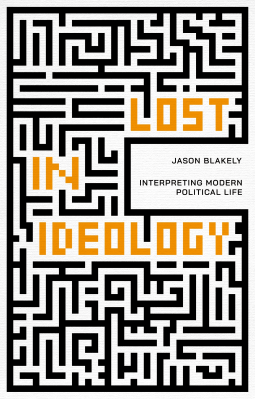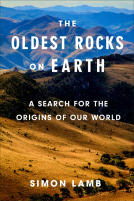
Lost in Ideology
Interpreting Modern Political Life
by Jason Blakely
This title was previously available on NetGalley and is now archived.
Send NetGalley books directly to your Kindle or Kindle app
1
To read on a Kindle or Kindle app, please add kindle@netgalley.com as an approved email address to receive files in your Amazon account. Click here for step-by-step instructions.
2
Also find your Kindle email address within your Amazon account, and enter it here.
Pub Date 26 Mar 2024 | Archive Date 30 Apr 2024
Talking about this book? Use #LostinIdeology #NetGalley. More hashtag tips!
Description
Lost in Ideology sets out from the conviction that the current disorientation engulfing the world’s liberal democracies is in no small part ideological in origin. People feel confused because there are multiple ideological maps, so to speak, each marked by dramatically different points of interest, rivers, summits, roads, and total topographies. Ideology in the modern era has the paradoxical effect of orienting millions even as it disorients millions. This leads us to the present-day predicament in which individuals of every imaginable political stripe confidently declare: “I have a theory – but you? You have an ideology!”
Advance Praise
"Citizens are too easily "lost in ideology". In this terrific book, Jason Blakely clarifies the shifting pathways and maps that shape both ideologies and possibilities for moving beyond them."
-- Craig Calhoun, University Professor of Social Sciences, Arizona State University and co-author of Degenerations of Democracy
"This is a warm, humanist and vital book for our moment which does a tremendous job mapping the ideological terrain of the past 200 years. It manages to do so with both sophistication and a democratic sensibility. One is reminded of the quote attributed to Terence: "Nothing human is foreign to me". How many books can you point to where Michael Oakeshott, Wendy Brown, Marx and Mill, all are taken seriously and put in dialogue with one another?"
-- Matt McManus, author of The Political Right and Equality and co-host of the Academic Edgelords podcast
Available Editions
| EDITION | Other Format |
| ISBN | 9781788216630 |
| PRICE | $30.00 (USD) |
| PAGES | 208 |
Links
Available on NetGalley
Average rating from 6 members
Featured Reviews
 Emili Z, Reviewer
Emili Z, Reviewer
This book should be a must-have pocket book for those who discuss politics in any dimension and an important read for the ones who are present in online spaces where ideologies are deliberated. I would recommend it as those important books you keep on your shelf for consulting as you go, rather than reading it all in one streak.
In a time where we are all so divided by different sects, ideologies, schools of thought and political views, it is important to seek counsel from a source like this - one that will show you the ups and downs of each ideology in a neutral way.
For those who are not well-read in politics and sociology, it offers essential perspective and base knowledge. For those who are well versed, this offers a grounding experience.
The criticism I have of this book is that whenever it argues a point of view is wrong, there was a missed change to explore why such point of view is wrong.
It is a short and easy read, making it quite accessible even for the laziest learners to the busiest political enthusiasts.
The link to my video review is attached to this.
‘Comparative Religions’ For US Politics Should Be Required Reading For Every Voter In An Election Year. The title of this review basically sums up the entire review. This truly is a well written “comparative religions” type text, except for US political thought rather than the various global religions traditions. Showing the history and development of each “map”, as Blakely calls them, (but without much documentation – more on that momentarily), Blakely does a remarkably balanced job of showing each school of thought in as close to a neutral fashion as may be possible – extremists within any given school may think he didn’t present “their” side good enough, or perhaps shows “their” enemies in too good of a light, but from an objective-ish position, I stand by my statement of just how neutral he really is here. And yes, I really do think this should be required reading for every US voter before really even deciding who ultimately to vote for in any given election, as this book is truly a solid primer on the various ideologies used throughout the US and their various offshoots and intersections. Truly, it will allow each individual to better understand even those they disagree vehemently with, and ultimately a voter that better understands everyone is a better informed voter, period, who ultimately would at least have the ability to make a more fully informed decision.
Indeed, the *only* problem with this book – and thus the star deduction, as it *is* something I deduct for in all instances – is the lack of documentation. Even if I were willing to slide from my 20-30% standard (and as I’ve mentioned in previous reviews, I am openly considering this with every new book), this book clocking in at just 12% documentation still feels a bit light for all of its claims, no matter how well balanced.
Still, again, every voter should absolutely read this book before making any electoral decisions going forward, whether that be in 2024 or for the next several years – until this book is invalidated by future changes, whenever that may be. Very much recommended.






